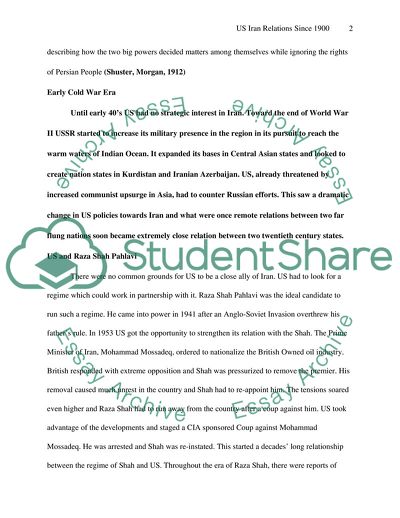Cite this document
(US-Iran Relations since 1900 Report Example | Topics and Well Written Essays - 1750 words, n.d.)
US-Iran Relations since 1900 Report Example | Topics and Well Written Essays - 1750 words. https://studentshare.org/history/1730386-iranianunited-states-relations-since-1900-to-present-day
US-Iran Relations since 1900 Report Example | Topics and Well Written Essays - 1750 words. https://studentshare.org/history/1730386-iranianunited-states-relations-since-1900-to-present-day
(US-Iran Relations since 1900 Report Example | Topics and Well Written Essays - 1750 Words)
US-Iran Relations since 1900 Report Example | Topics and Well Written Essays - 1750 Words. https://studentshare.org/history/1730386-iranianunited-states-relations-since-1900-to-present-day.
US-Iran Relations since 1900 Report Example | Topics and Well Written Essays - 1750 Words. https://studentshare.org/history/1730386-iranianunited-states-relations-since-1900-to-present-day.
“US-Iran Relations since 1900 Report Example | Topics and Well Written Essays - 1750 Words”. https://studentshare.org/history/1730386-iranianunited-states-relations-since-1900-to-present-day.


